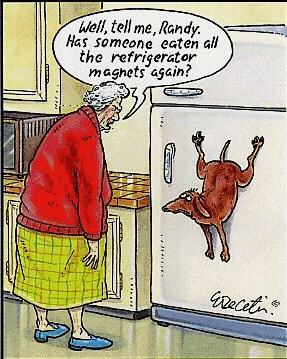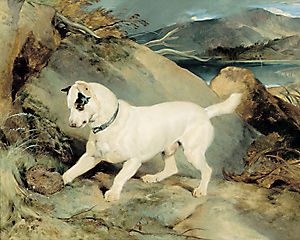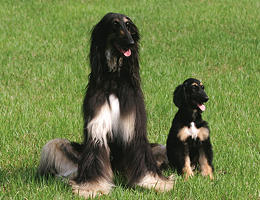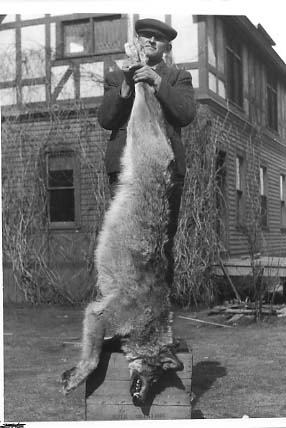
Saturday, August 27, 2005
Friday, August 26, 2005
At the Division of Unintended Consequences

Edward Landseer's painting of Jocko with Hedgehog, 1828
Anti-fox Hunting Law Affects Hedgehogs
Aug 20, 2005
EDINBURGH, Scotland (UPI) -- The law that outlawed fox hunting in Britain means that introduced hedgehogs in the Hebrides must be shot instead of being killed by lethal injection.
That`s because the hedgehogs, the target of an extermination campaign, have become so scarce they must be hunted with dogs, the Times of London reports. The hunting law allows dogs to be used only to flush out wild animals for guns or tame birds of prey.
Hedgehogs were introduced to the Outer Hebrides 30 years ago by a gardener who hoped they would get rid of slugs. Unfortunately, they have multiplied to the point where they threaten colonies of nesting birds on the islands of North Uist and Benbecula.
Thursday, August 25, 2005
Wednesday, August 24, 2005
Good Reading Worth Noting

I have added three new buttons to the front page of the www.terrierman.com web site, which can also be seen to the right below the date links. The links below are provided as a service (and a thanks) to those who are passing it on in a sensible and permanent way.
- Read Country Books is the well-named online book store run by Ben Read who is doing a great service by finding and reprinting a lot of the old field sport books which have gone out of print. The prices are more than fair, the service excellent, the books a delight to read. Highest recommendation!
- Coch-y-Bonddu Books is another great online store (and physcial store too if you are in Wales) that has a wide variety of new and old books on field sports. Again, great prices, great service, and my highest recommendation.
- Earth Dog - Running Dog is David Harcombe's magazine in the UK which can now be ordered online.
Ignorance May Yet Prove to be a Treatable Disease
From Jeanette Winterson's web site which I stumbled across. She is a writer of books and columns for various newspapers. This is obviously an old piece, but it has not spoiled on the shelf.
______________________________
The Guardian The Countryside Debate
When I moved to the Cotswolds eight years ago, I was anti-hunt. I had never been to a Meet, talked to any of the characters involved, or visited the kennels. I knew nothing about horses. Yet I was wary of imposing my views on people I had only just met, so I decided to test my instincts against the reality of the situation. I agreed to let the Hunt continue to ride over my land a season. In the meantime, I learned to ride myself, and I spent a lot of time listening and watching.
I became friendly with a kennel man, who earns very modestly, lives in a tied cottage, and is content. He does not want to win the lottery or be rich and famous; he wants to breed hounds. He explained to me that you have to stick with the job for at least five years, because that's how long it takes to bring on a hound. There is no reward, other than the work itself.
The stereotype of hunting is the fat men and loud ladies baying for blood at the weekend after a week's stock-broking. There are some of those, but they are not why hunting happens, or why it should be allowed to continue. I believe it should continue, because I have seen how closely hunting meshes with the economic and social fabric of rural living. It is not enough to argue that country people with real skills, who work with dogs and horses, as breeders, farriers, trainers, grooms, whippers-in, muckers -out, should all go and work in tea-shops or sell postcards.
The Countryside March next weekend will not be packed with unspeakable toffs and sinister slit-eyed badger baiters; it will be a march of ordinary people who feel they are being slowly bred to death by an urban drive to make the countryside anaemic.
On the new Animal Farm, Tourism is Good. Farming is Bad. Rambling is Good. Landowning is Bad. Foxes are Good. Hunting is Bad.
These cheap, dreary polarities tell no truth, but they are politically useful to New Labour, who have handled the issues around Farming, Hunting, and the Right to Roam, clumsily enough to turn genuine questions needing to be asked, into walls of mutual animosity.
Labour talks about bring a One Nation Party, but that will never happen while urban values are forced on the Countryside in the name of Democracy.
It is true that country sports, and the employment they generate, involve killing animals. If we were a nation of vegetarians, our objections to hunting might carry more weight, but I am out of sympathy with the hypocrisy of those who seize on fox hunting as easy prey, while ignoring the more urgent issues of animal welfare and husbandry.
Why is it perfectly acceptable to eat meat that has been reared in misery, brutally transported and badly butchered, but unacceptable to ride to hounds?
Why is it fine to keep a large dog in a small city flat, but disreputable to be a terrier man?
There is no logic to the hunting issue, and it makes no sense to ban hunting, and licence shooting and fishing. The next target will be eventing and racing. In any case, all equestrian sport begins on the hunting field; it is the only place to socialise horses.
Drag hunting? Well, if it placates your conscience, fine, but it won't save the life of a single fox, who may not thank you for your kindness in shooting or gassing him, instead of hunting him.
Meanwhile, intensive farming, which is what the public demands because it wants cheap food, will continue. That means declining wildlife and the abject conditions of reared stock.
Here's a true story.
I keep hens. If you keep hen you also keep rats. Nobody is interested in a Rat Protection Bill, so you can kill them as you wish. The best way - and the most dramatic - is to get in a terrier man. Boots up to the knee are essential, unless you are truly hard, and content to tie the bottoms of your trousers with string.
Once the rats are on the move, the terriers are loosed, and will dig them out. It is a fast-moving, high adrenaline pursuit, and when the dogs really get going, two of them will jump a rat and pull it apart like a Christmas cracker.
The man who does this for me has a thirteen year old boy who goes to a school in town. He told me how his teacher had over-heard him talking about our ratting weekend, and made an example of him before the class. The teacher said that what James had done was brutal and unnecessary. They are kinder ways to kill rats.
'No' said James, and tried to explain that Warfarin, the poison of choice, takes three days to kill a rat, who bleeds to death through the stomach. Any animal or bird that eats the rat will be poisoned too.
To trap a rat humanely, you must bait the trap with a sausage - so too bad for the pig - and the rat still has to be killed somehow. I've tried this method, and either you drown the rat in a bucket or you blow its brains out. Either way it squeals continuously.
Is James de-sensitised by his ratting days? Does shooting crows with his air rifle and hanging them upside down to scare off other birds, make him a coarser boy than he would be if he hung around shopping malls or slobbed in front of the telly?
In the endless debate about rural and urban values, which seems to obsess around the hunting issue, no-one asks how it has de-sensitised and coarsened human beings to live in cities, cut off from our evolutionary environment,
William Wordsworth was one of the first writers to confront the deadness of urban living in the new industrial revolution. We think of him vaguely as a Nature poet, but his work was not about nature, it was about Nature's effect on the soul of Man - and what happens to the soul when it loses Nature's daily presence.
What certainly happens is that cut off from the realities of Nature, we become outraged by them. Nature, and animals, are amoral. Our own morality has developed around a careful code of protecting ourselves from others and others from ourselves Freud took the view that we create civilisation to save us from the ruthlessness of the natural world. It is good that we should do so - it is not good when we re-interpret the natural world as a moral failure; a primitive state that needs constant intervention.
New Labour believes in constant intervention, but what the countryside needs is to draw up its own agenda for change and sustainability. If that includes hunting, so be it.
I hope that the international crisis will not be used as an excuse to dismiss the March as minority moaning. The problems of this small island remain the same in miniature as the problem presently facing the whole world; how do we live side by side, without forcing everyone to live in the same way?
Monday, August 22, 2005
Sunday, August 21, 2005
Sailor Exits a Feed Bunk
Sailor nailed a few rats inside this cracked feed bunk -- a tight squeeze in, but a fair amount of room inside from the sound of it.
-
Thursday, August 11, 2005
Something Good Might Happen Here
Mountain listens to the sound traveling up the bar. This hole had another two feet to go on a very hot day!
Wednesday, August 10, 2005
Sailor on the Way Home
I got to make a mess of the front seat and I didn't get hurt on barbed wire like that other dog!
Tuesday, August 9, 2005
Barbed Wire Wins Again

It was short day in the field on Sunday, with the dogs bolting two large groundhogs in the 92 degree heat.
Unfortunately, Mountain chased the second groundhog out of the hole and ripped open her leg as she tried to clear a low strand of barbed wire in the hedgerow..
The wound was pretty deep. I did a quick washout of the wound while in the field (mostly just to keep the edges of the wound moist), and a better "power wash" of the wound at home about an hour later. I then squirted betadyne deep into the gash and let it dry before closing the slice with a generous dose of NexCare Liquid Bandage Drops (available at CVS and the same as VetBond as far as I can tell). I topped off my medical attention by loading Mountain up with a triple dose of Cephelaxen.
After two days in a crate (and more preventive antiobiotics) Mountain was back trotting around the yard again today. She has more-or-less stopped limping, but I'm keeping her out of the field for the next two weeks as I don't want that gash to open up again.
Sunday, August 7, 2005
Rat Terrier Origins
Terriers came to America long before there were "breeds" as we know them today, and across the South and in some parts of the West they were used as all-purpose hunting dogs, good for squirrel, possum, groundhog, raccoon, deer, fox and even bear. Grouped under the title "feist" (a term first coined by George Washington), the dogs were very loosely bred for looks but at times very closely bred for utility.
One of the most famous feists in American terrier history was originally owned by Colorado bear hunter John Goff.
In a September 1905 article in Outdoor Life magazine, Goff described his bear pack "in the order of efficiency" as "foxhounds, bloodhounds, crosses between these two, bull-terriers, fox-terriers, fox-terrier crosses with other terriers, and canines that can only be called just ‘dog’.”
In 1905 Goff was hired as a bear hunting guide by President Theodore Roosevelt. During the trip Roosevelt was enchanted by the boisterous bravery of a small black and tan terrier that joined the bear-hunting fray. The dog was named "Skip," and for the remainder of the trip he managed to find himself in Roosevelt's lap or on his saddle.
Goff gave the terrier to Roosevelt at the end of his stay, and Roosevelt brought the dog back to the White House where it found work chasing rats in the basement and served as progenitor of the breed we know today as the American Rat Terrier.
Skip died the year before Roosevelt left the White House and was buried on the back lawn. The dog was so loved, however, that when Roosevelt left he had the dog exhumed and the body reinterred at Sagamore Hill, the family's New York estate.
Saturday, August 6, 2005
Friday, August 5, 2005
Thursday, August 4, 2005
The Jack Boot of the State vs. Rural Jobs
I'll fight on to Save the Hunt. Aug 2, 2005
By Sarah Probert, Rural Affairs Reporter, ic Birmingham.co.uk
Britain's longest serving huntsman has vowed to fight for his future despite losing a High Court challenge claiming the ban on hunting with hounds infringed his human rights.
Roger Bigland, a terrier man with the North Cotswold Hunt, who will lose his livelihood if the Government ban is not overturned, said he feared the worst following the decision but vowed to appeal against it.
The 61-year-old, from Evesham, Worcestershire, was one of ten claimants who saw their case for a judicial review dismissed by the High Court last week.
The Countryside Alliance, which is backing the claimants, said it would be appealing against the ruling.
Mr Bigland, who has been hunting for 41 years, said: "We are the people that are in the countryside, we are the people dealing with the problem, and we know that we are right.
"We are intending to fight, fight and fight until we get it overturned."
Mr Bigland said the judges had admitted the claimants' human rights were contravened by a ban and accepted that if a total ban remained there was going to be a substantial effect on rural life.
The Countryside Alliance is awaiting a final ruling on its first challenge, which argues that the 2004 Act is unlawful because the Parliament Act 1947, under which it was forced on to the statute books despite the opposition of the Lords, is not a lawful statute itself.
That claim was thrown out by the High Court and the Court of Appeal, and is now awaiting a judgment from the House of Lords in the autumn.
As a terrier man, Mr Bigland liaises with farmers and the hunt to find out where foxes may be causing problems.
Despite fears for the future of hunting, Mr Bigland is continuing as normal and preparing the countryside for the hunting season, which begins after harvest in September.
With the ban in place, hunts have been continuing to operate in a number of ways, either by riding out to exercise the hounds or destroying foxes by shooting them.
However, it is unclear how long they will continue operating if all appeals to overturn the ban are dismissed.
"It doesn't look good for anyone in my sort of job. If the case in the House of Lords goes against us, I think there will have to be a lot of hounds put down.
"There would be a greater reduction in the number of horses kept. I am very lucky at the moment that my masters are keeping me going until every avenue has been tried," Mr Bigland said.
The North Cotswold Hunt held an open day at its kennels at the weekend which attracted a record number of visitors. "We had more support than we had in the last 20 years, they all wanted us to go on," Mr Bigland added.
The hunt plans to lay off three of its four staff and keep just ten of its 40 hounds if the hunting ban is not overturned.
Is a Cloned Afghan the Beginning of End for Shows?

It's the first cloned dog -- an Afghan of all things. The process is very, very expensive and inefficient, but so was invitro fertilization 20 years ago; now it's how most of the top horse and cattle are being bred.
_________________________________
Snuppy, the First Cloned Puppy
S. Korean scientists say creation will help in human disease research
By Joseph B. Verrengia, Associated Press, August 5, 2005
He could be just another frisky, long-haired puppy with a slightly dazed expression. But his genetic fingerprint says otherwise.
Meet Snuppy, the world's first cloned dog. Scientists duplicated this Afghan hound, born 14 weeks ago, using a skin cell plucked from another hound. The two dogs are three years apart but genetically identical, right down to their weird, tan eyebrows.
Snuppy was created by South Korea's pioneering stem cell scientist, smashing another biological barrier and reigniting a fierce ethical debate.
The researchers, led by Hwang Woo-suk, insist they cloned the Afghan hound, a resplendent supermodel in a world of mutts, only to help investigate human disease, including the possibility of cloning stem cells for treatment purposes.
The dog's appearance in Thursday's issue of the journal Nature stirred renewed calls for a global ban on the cloning of humans to produce babies.
"Successful cloning of an increasing number of species confirms the general impression that it would be possible to clone any mammalian species, including humans," said Ian Wilmut, a reproductive biologist at the University of Edinburgh who produced the first cloned mammal, Dolly the sheep, from an adult cell nearly a decade ago.
Researchers have since cloned cats, goats, cows, mice, pigs, rabbits, horses, deer, mules and gaur, a large wild ox of Southeast Asia. So far, efforts to clone a monkey or another primate with the same techniques have failed.
Uncertainties about the health and life span of cloned animals persist; Dolly died prematurely in 2003 after developing cancer and arthritis.
Wilmut and others complimented Hwang's achievement. But they said politicians and scientists must face the larger and more delicate issue — how to extend research without crossing the moral boundary of duplicating human life in the lab.
"The ability to use the underlying technology in developing research models and eventually therapies is incredibly promising," said Robert Schenken, president of the American Society for Reproductive Medicine. "However, the paper also points out that in dogs as in most species, cloning for reproductive purposes is unsafe."
The cloned puppy was the lone success from more than 100 dogs implanted with more than 1,000 cloned embryos.
In a news conference in Seoul, the cloning team also condemned the reproductive cloning of humans as "unsafe and inefficient." Human reproductive cloning already is banned in South Korea. Other nations, including the United States, are split over whether to ban just human cloning or cloning of all kinds, including the production of stem cells.
Embryonic stem cells are the source of all tissue. Researchers believe they can be coaxed to grow into heart, brain or nerve cells that could be used to renew ailing organs.
Last year, Hwang's team at Seoul National University created the world's first cloned human embryos. In May, they created the first embryonic stem cells that genetically match injured or sick patients.
The researchers insisted the dog experiment was aimed at creating a reliable research model.
Monkeys are the closest model to humans, and they are crucial to medical research, but Hwang told reporters that cloning a monkey "is technically impossible at the moment."
"Dogs share physiological characteristics with humans," he said. "A lot of diseases that occur in dogs can be directly transferred to humans."
Animal welfare groups criticized the experiment. "This technology could lead to a brave new world of puppy production if it were hijacked by profiteers seeking to use cloning to supply the pet trade," said Wayne Pacelle, president of the Humane Society of the United States.
The researchers nicknamed their canine creation Snuppy, for "Seoul National University puppy," a reference to Hwang's lab. One of the dog's co-creators, Gerald Schatten of the University of Pittsburgh School of Medicine, described Snuppy, now 14 weeks old, as "a frisky, healthy, normal, rambunctious puppy."
On scientific terms, the experiment's success was mixed. Like Dolly, Snuppy was created using a method called somatic cell nuclear transfer.
Scientists took a skin cell from the ear of a 3-year-old male Afghan hound and extracted genetic material from the nucleus. They transferred it to an unfertilized egg whose nucleus was removed. The reconstructed egg holding the DNA from the donor cell was zapped with an electric current to stimulate cell division.
Dog eggs have been problematic because they are released from the ovary at an earlier, less mature stage than in other mammals. This time, the researchers collected more mature eggs from the donors' fallopian tubes.
They implanted 1,095 cloned embryos into 123 dogs and just three pregnancies resulted. That's a cloning efficiency rate lower than experiments with cats and horses. One fetus miscarried and one puppy died of pneumonia 22 days after birth.
That left Snuppy. He was delivered by Caesarean section from his surrogate mother, a yellow Labrador retriever.
Wednesday, August 3, 2005
Bolted Tree Climbing Groundhog
Until they bolt up a tree, it's easy to forget that the world's largest marmot is actually a type of very large ground squirrel. This fellow was bolted out of a shallow ridge of flint. If they bolt up a tree I always let them go for another day.
Monday, August 1, 2005
Blackberries and Butterflies
Nothing fancy -- just the sure signs of late July and early August as butterflies flit over fields untouched by pesticides, and blackberries provide food for raccoon, fox, possum, birds and bears.
This Virginia farm had heavy Percheron horses and the owner was afraid they would step in the groundhog holes and break a leg. Unfortunately, there were only three holes and nothing was in them -- I backfilled them, checked carefully for others over a very wide area, and found none.
The ground here is so rocky, that it will not take much to keep groundhogs out completetely. No day in a field is every wasted, however, and the dogs had a fine time running around on new land.

